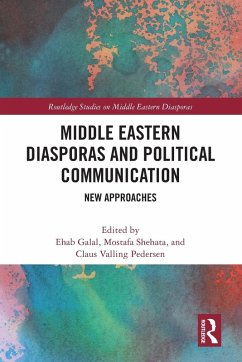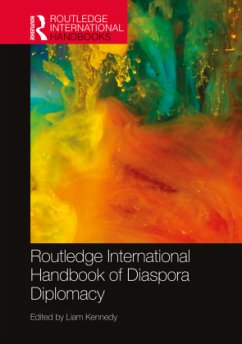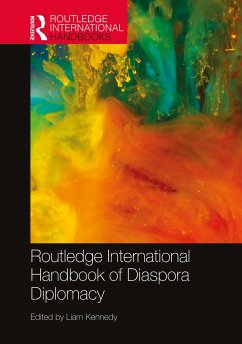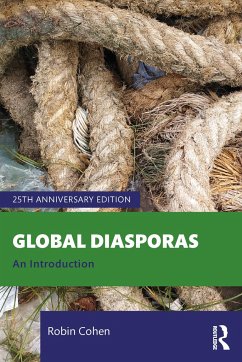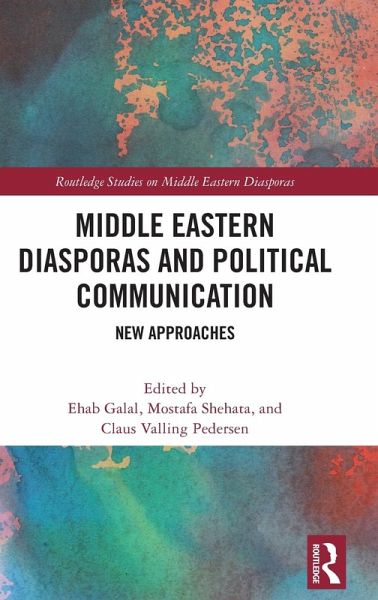
Middle Eastern Diasporas and Political Communication
New Approaches
Herausgegeben: Galal, Ehab; Shehata, Mostafa; Pedersen, Claus Valling
Versandkostenfrei!
Versandfertig in 6-10 Tagen
144,99 €
inkl. MwSt.

PAYBACK Punkte
72 °P sammeln!
This edited book explores the development and reconfiguration of Middle Eastern diasporic communities in the West in the context of increased political turmoil, civil war, new authoritarianism, and severe constraints on media in the Middle East.Taking an interdisciplinary approach, incorporating political and intercultural communication, the contributors investigate the rationale for diasporic politics, as well as the role of the transnational media in shaping diasporic political mobilization. This analysis of the media, situated within specific case studies, encompassing Afghani, Armenian, Ba...
This edited book explores the development and reconfiguration of Middle Eastern diasporic communities in the West in the context of increased political turmoil, civil war, new authoritarianism, and severe constraints on media in the Middle East.
Taking an interdisciplinary approach, incorporating political and intercultural communication, the contributors investigate the rationale for diasporic politics, as well as the role of the transnational media in shaping diasporic political mobilization. This analysis of the media, situated within specific case studies, encompassing Afghani, Armenian, Bahraini, Egyptian, Lebanese, Syrian, Tunisian, and Turkish diasporic communities, reveals the variegated ways it influences diasporic politics and facilitates political action, as well as its influence on democratic actors residing in the Middle East. These new insights into Middle Eastern diasporas, political communication, and political mobilization are based on developments in the Middle East since 2011, and ultimately highlight how diaspora groups in the West relate to the situation in the Middle East, particularly in their countries of origin.
The book is important reading for students and researchers working in political/intercultural communication and diasporic politics, as well as those with a general interest in the Middle East.
Taking an interdisciplinary approach, incorporating political and intercultural communication, the contributors investigate the rationale for diasporic politics, as well as the role of the transnational media in shaping diasporic political mobilization. This analysis of the media, situated within specific case studies, encompassing Afghani, Armenian, Bahraini, Egyptian, Lebanese, Syrian, Tunisian, and Turkish diasporic communities, reveals the variegated ways it influences diasporic politics and facilitates political action, as well as its influence on democratic actors residing in the Middle East. These new insights into Middle Eastern diasporas, political communication, and political mobilization are based on developments in the Middle East since 2011, and ultimately highlight how diaspora groups in the West relate to the situation in the Middle East, particularly in their countries of origin.
The book is important reading for students and researchers working in political/intercultural communication and diasporic politics, as well as those with a general interest in the Middle East.





